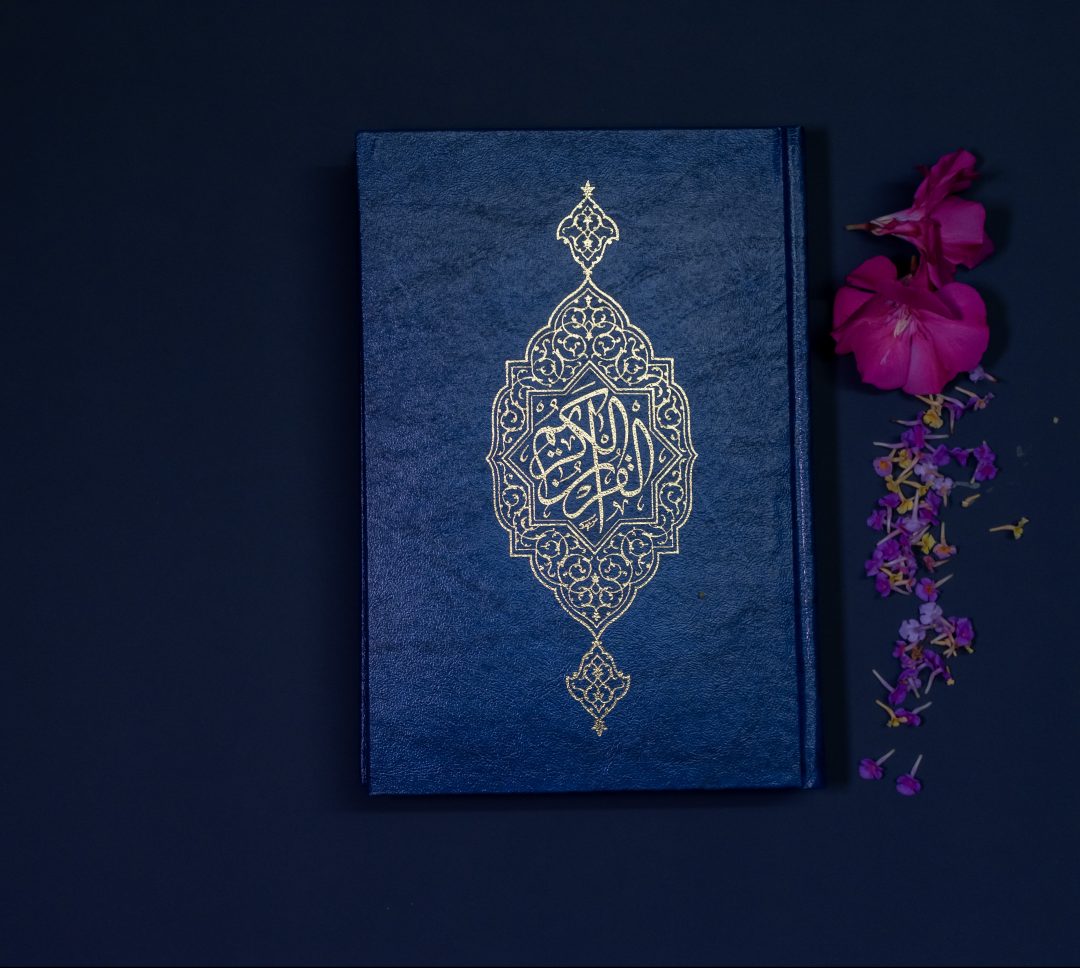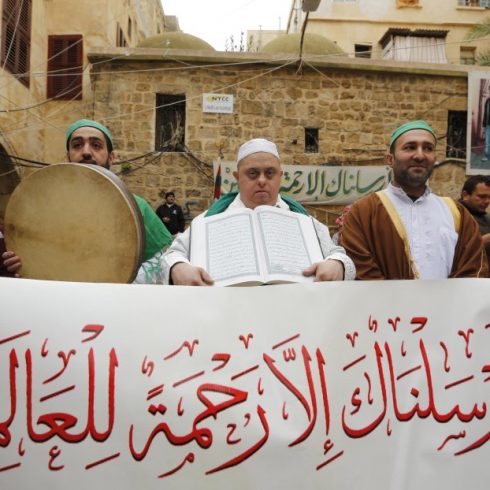*Please Note: the following is not an extensive tafsīr/interpretation of Surah Al-Māʿūn; it is a combination of explanations of this beautiful Qur’anic chapter derived from other tafasīr or from personal reflections on the Surah. My favourite resources which I have derived information from for this article are Min Wahy Al-Qur’an by Sayyed Muhammad Hussain Fadlallah (Arabic – click here), Ustadh Nouman Ali Khan (English Audio – click here), and Enlightening Commentary into the Light of the Holy Qur’an (English – click here).
بِسْمِ اللهِ الرَّحْمنِ الرَّحِيمِ
In The Name of Allah, The Beneficent, The Merciful
أَرَءَيۡتَ ٱلَّذِي يُكَذِّبُ بِٱلدِّينِ
Have you seen the one who denies the Final Judgement? (1)
فَذَٰلِكَ ٱلَّذِي يَدُعُّ ٱلۡيَتِيمَ
For that is the one who violently pushes away the orphan (2)
وَلَا يَحُضُّ عَلَىٰ طَعَامِ ٱلۡمِسۡكِينِ
And does not encourage the feeding of the poor (3)
فَوَيۡلٞ لِّلۡمُصَلِّينَ
So woe to those who pray (4)
ٱلَّذِينَ هُمۡ عَن صَلَاتِهِمۡ سَاهُونَ
Who are heedless of their prayer (5)
ٱلَّذِينَ هُمۡ يُرَآءُونَ
Those who make show [of their prayers/good deeds] (6)
وَيَمۡنَعُونَ ٱلۡمَاعُون
And withhold [even] simple assistance (7)
Surah Al-Māʿūn is a very powerful chapter of the Qur’an, that diagnoses some of the key features of a corrupt individual and a corrupt society. It is immensely important that we learn and implement the invaluable lessons contained within it’s verses.
Verse 1: The Surah begins with referring to the one who denies that there is a Day of Judgement (Note: the Qur’an uses the word ‘deen’, however this is most commonly interpreted as the hereafter, or the reward/punishment of our actions in this world which we obtain on the Day of Judgement, being a culmination of all that religion teaches and encompasses). The first thing that would cross someone’s mind is that this verse is talking about the disbelievers, those who do not believe in Allah (swt) in the first place. Theoretically speaking, a believer believes in the Day of Judgement as part of his belief. The verse is asking a rhetorical question – have you actually thought and reflected about this kind of person? What kind of person is this? It may not be what first comes to your mind.
Verse 2: The second verse begins to answer the question posed in the first: this person is he who violently rejects the orphans. The word yaduʿ (يَدُعُّ) is a highly descriptive verb which means to violently push away. It conjures up images of a heartless person mercilessly rejecting a vulnerable and innocent orphan. The word yatīm or orphan is used in a singular not plural for a very specific purpose. When a person hears this verse, their mind will straight away go to that individual orphan that they have rejected, and in this way the verse individualises the oppression to single out those who don’t help the orphans, and instils a deep sense of guilt in their heart. What’s interesting is that this verse is linked to the preceding verse, as if to say that those who deny resurrection and accountability are denying something that the heart needs, and without it the heart become hard. This person rejects the orphan because he does not fear God and does not accept that he will be asked about these actions one day.
Verse 3: Another characteristic of this kind of individual is revealed in the third verse. The word yaḥuḍ (يَحُضُّ) means to encourage and urge. This person finds no importance in feeding the hungry, or helping the needy (miskīn), to the extent that he won’t even go as far as encouraging others to do so (and thereby helping indirectly). This individual has no empathy and no sense of responsibility. His heart is hard and he has no desire in aiding the needy, despite this responsibility that Allah (swt) has appointed all human beings with. In short, this kind of person is inhumane.
Verse 4 + 5: These verses are very interesting, as they refer to those who pray. But those who pray are believers, right? This suddenly puts a very interesting twist on the surah since, up to this point, a believer reading the verses may very easily distant themselves from those evil and inhumane actions described. They would think: “I believe in Islam and the hereafter, so this is just talking about the ‘bad’ people, not me.” However, now Allah (swt) is referring to the musallīn, the people who pray. It’s now not about the apparently disbelieving people, it is about the believers who follow Islam and pray.
Additionally, note the use of the plural form for the word musallīn/people who pray. Previously Allah (swt) was using the singular form (yatīm, miskīn to draw attention to the individual oppressed persons), but now those who pray is in a plural form to force the reader to stop and think – am I considered part of this group? I pray, could this be talking about me?
Also, it’s important to note that the verse says ‘heedless of their prayers’ not in their prayers – so it is referring to those who are intentionally neglectful of their prayers, and do not ascribe any importance to their salah. This involves praying at the end or past prayer time, not praying correctly or any other action that insinuates their lack of care when it comes to prayer. If it had said fi/in, it would be referring to the mistakes that happen in salah, e.g. not knowing how many rukūʿ have been performed and so on. However those mistakes – as undesirable as they are – are sometimes unavoidable and happen unintentionally for a lot of people, and therefore don’t deserve as hefty of a condemnation as wayl (وَيۡلٞ). Being neglectful of prayer, however, is a matter not to be taken lightly. Wayl is the worst form of destruction, and when Allah (swt) uses it, it must be taken very seriously. So these people who Allah (swt) is referring to, consider salah as a superficial ritual to be performed, rather than a deep and spiritual act of worship to Almighty God.
Verse 6: Not only do the people who deny the Day of Judgement reject orphans, the needy, and are neglectful of their prayer, these people also do good deeds only in public to show-off and to impress those around them. That is what makes their acts of worship, such as salah, hollow; they have no connection with their Creator. It is for this reason that those same people who pray regularly (musallīn), are also the ones who push away orphans and refuse to help the needy. Since they take religion on a superficial level only, their salah doesn’t reflect the true belief in the Day of Judgement which would necessitate a perfect salah. Yes, you might pray, but you don’t care about your prayer. You don’t care about Allah (swt). You don’t care about others – your only interest is yourself and your image. This is the person that the verse is describing.
We know that there is a huge emphasis on salah in Islam – it is obligatory on us as Muslims.
قال رسول الله (ص): الصلاة عمود الدين ان قبلت قبل ما سواها و ان ردت رد ما سواها
It is narrated that the Prophet Muhammad (pbuh) said: Salah is the pillar of religion – if it is accepted, everything other than the prayer is also accepted. If the prayer is rejected, everything other than prayer will be also rejected.
This hadith means that prayer is a reflection of yourself and your intentions. How can someone have a pure intention for anything if their intention behind salah is not pure? Salah is our method of connection with our Creator and is what should keep us on track and improve our character. So, those same people who deny the Day of Judgement, also refuse to help orphans and the needy, and they pray, but only to impress those around them. At this point we need to start thinking, how much weight do we give to our prayer? Do we prioritise it over anything else in our lives, or do we make excuses for ourselves to delay our prayers? Do we live only for ourselves or do we help others? Do we truly believe that we will be held accountable for everything we do in this life one day?
Verse 7: And finally, they refuse to give al-Māʿūn. The word māʿūn means anything beneficial, and the small necessities. Giving al-Māʿūn is giving something beneficial, but so insignificant that the giver loses nothing by handing it to someone else. It is the lowest form of giving because it involves no sacrifice. If a person can’t even give these small, beneficial goods, how will he be able to give more to help others (money, time etc)? The surah allows us to conclude that the one who refuses to give these small goods must have such a hard and merciless heart – due to his insincere intentions as discussed above.
As we can see, there are many key lessons we can derive from surah al-Māʿūn:
- Denying the Day of Judgement is denying having consequences to your actions.
The start of the surah underlines that the kind of person in question is he who does not believe in the hereafter, and because of this, exhibits all these low, inhumane qualities. If you think about it, what is the Day of Judgement but a day when we will be held accountable, and where we will be recompensed for our good deeds or punished for the bad? It is the day when we will see the consequences of everything we did in this dunya – good or bad. If we don’t believe in this day of accountability, why would it matter if we refused to help the orphans and the needy? Why would it matter if our prayer is done correctly or not? Hence, the people in question here are those who reject the concept of having consequences to their actions, and therefore feel free to do what they please and live a self-centred, inhumane life. We may in our minds believe that the Day of Judgement is certain, but it is more important to believe it in our hearts, and the proof of this is when we become the opposite of what the surah describes. So, a believer may superficially believe that the Day of Judgement will come, they do not implement this belief into their everyday life. Implementation of this belief would mean abstaining from any bad actions and striving passionately towards the good – all with the ultimate reward of Allah’s (swt) pleasure in mind.
- Just because you’re a believer, doesn’t mean you’re safe.
As is apparent from this brief analysis of surah Al-Māʿūn, those who believe in God and are Muslim are certainly susceptible to committing sins and displeasing God. Often, we believe that since we pray, and we believe in Allah (swt), we are the best human beings on this earth, and are granted paradise. Surah Al-Māʿūn comes to totally eliminate this mindset. It compels us to question ourselves – are we praying properly and with the right intentions? Do we do good only to show off? Do we refuse to help those who are in need and are suffering, even if it means giving the smallest and most insignificant things? Do we really believe in the concept of the Day of Judgement? This mirrors the emphasis Islam puts on reflection – we need to constantly reflect and screen ourselves to make sure we are not straying from the ṣirāṭ almustaqīm – from the straight path. And we need to hold ourselves accountable on a daily basis before it comes time for Allah (swt) to hold us accountable on the Day of Judgement. This is not easy but is at the pinnacle of jihad al-nafs – the struggle of the self.
- The essence of Islam lies in Salah (prayer) and giving.
Surah Al-Māʿūn presents to us an intricate correlation between a sincere salah and giving to those in need. These are the two things which will keep our heart soft, and will prove to us that we are not in denial of the Day of Judgement. How much do you give and how good is your salah? This is the criteria for a true believer, and these are what keep our hearts soft. Further, the pure salah is what will protect us from rejecting the orphans and the needy, among many other unacceptable sins, and will perfect our manners. If our salah is weak then we must immediately start working on it. If we don’t like to help the orphans, then we need to change that. If we do good deeds just to show others that we are good people, then we need to reassess our intentions.
May Allah (swt) allow us to always be of those who are true believers in the message of Islam and everything that it entails, and may He give us the strength and tawfeeq to strive for our betterment in this path. Amīn.
By Noor Alsaffar






